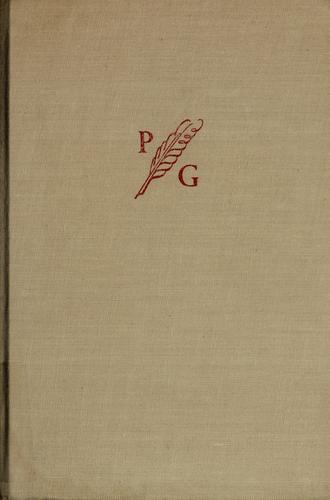The Enlightenment, an interpretation. - Info and Reading Options
By Peter Gay, Tsung-i Jao, Edmund Husserl and Herman Lautensach

"The Enlightenment, an interpretation." was published by Knopf in 1966 - New York and the language of the book is English.
“The Enlightenment, an interpretation.” Metadata:
- Title: ➤ The Enlightenment, an interpretation.
- Authors: Peter GayTsung-i JaoEdmund HusserlHerman Lautensach
- Language: English
- Publisher: Knopf
- Publish Date: 1966
- Publish Location: New York
- Dewey Decimal Classification: 190
- Library of Congress Classification: B802 .G3
“The Enlightenment, an interpretation.” Subjects and Themes:
- Subjects: ➤ Enlightenment - Europe - European Philosophy - History - Intellectual life - Modern Philosophy - Philosophy - Philosophy and religion - Verlichting (cultuurgeschiedenis) - Histoire - Néopaganisme - Vie intellectuelle - Siècle des lumières - Philosophie - Inscriptions, Chinese. - Oracles, Chinese. - Divination. - China -- History -- Shang dynasty, 1766-1122 B.C. - Experience. - Judgment (Logic) - Physical geography -- Korea. - Korea -- Geography. - Korea -- Description and travel. - Neopaganism
- Places: Europe
- Time: 18th century - 18e siècle
Edition Specifications:
- Pagination: 2 v.
Edition Identifiers:
- The Open Library ID: OL5981706M - OL924644W
- Online Computer Library Center (OCLC) ID: 3464924 - 1101074 - 553006
- Library of Congress Control Number (LCCN): 66010740
AI-generated Review of “The Enlightenment, an interpretation.”:
"The Enlightenment, an interpretation." Table Of Contents:
- 1- [1] The rise of modern paganism.
- 2- v. 2. The science of freedom.
"The Enlightenment, an interpretation." Description:
The Open Library:
Peter Gay will inevitably leave his stamp on our conception of the Enlight- ment for decades to come. The sheer bulk of his writing on the subject alone will ensure that. He began his re-interpretation of the movement in 1959 with Voltaire's Politics: the Poet as Realist, showing the foremost philosophe to have been a much more liberal and practical political thinker than had often been assumed. There followed in 1964 The Party of Humanity, a series of essays in which Gay challenged some of the commonplace characterizations of the philosophes, especially the notion that they were impractical idealists. Then in 1966 he published The Rise of Modern Paganism, the first volume of his interpretation of the Enlightenment. He completed this analysis in 1969 with a second tome entitled The Science of Freedom. Finally last year he capped his work with The Bridge of Criticism, a debate among Lucian, Eras- mus, and Voltaire which the author admits amounts to a polemic on behalf of the Enlightenment. Meanwhile he had propagated his view of the movement in the introductions to his translations of Voltaire's Philosophical Dictionary and Candide, his anthologies of the works of Deists and of Locke on educa- tion, and his numerous articles and public lecture. -- Description from http://www.jstor.org/stable/2737948 (April 17, 2012).
Read “The Enlightenment, an interpretation.”:
Read “The Enlightenment, an interpretation.” by choosing from the options below.
Search for “The Enlightenment, an interpretation.” downloads:
Visit our Downloads Search page to see if downloads are available.
Borrow "The Enlightenment, an interpretation." Online:
Check on the availability of online borrowing. Please note that online borrowing has copyright-based limitations and that the quality of ebooks may vary.
- Is Online Borrowing Available: Yes
- Preview Status: borrow
- Check if available: The Open Library & The Internet Archive
Find “The Enlightenment, an interpretation.” in Libraries Near You:
Read or borrow “The Enlightenment, an interpretation.” from your local library.
- The WorldCat Libraries Catalog: Find a copy of “The Enlightenment, an interpretation.” at a library near you.
Buy “The Enlightenment, an interpretation.” online:
Shop for “The Enlightenment, an interpretation.” on popular online marketplaces.
- Ebay: New and used books.